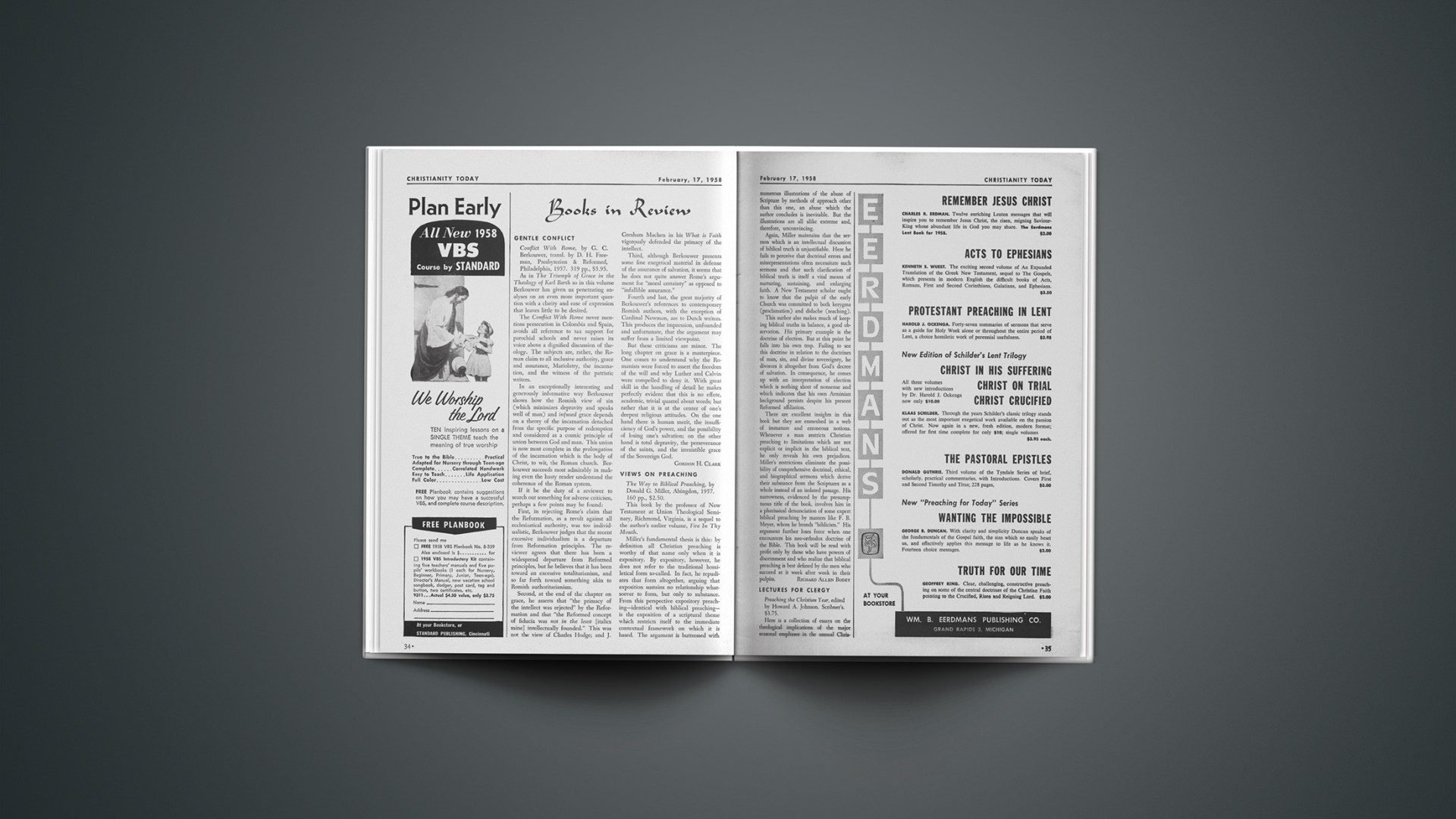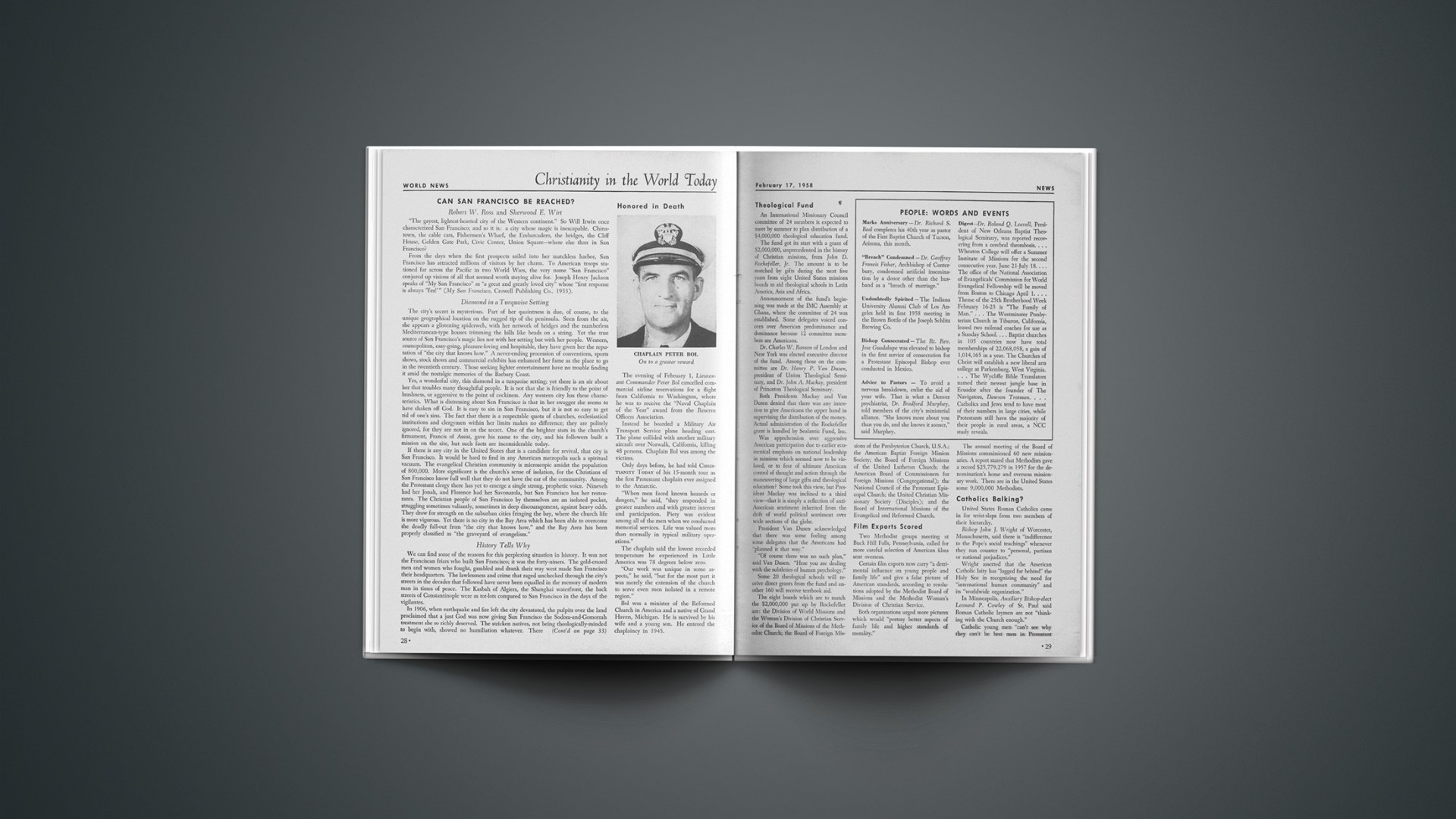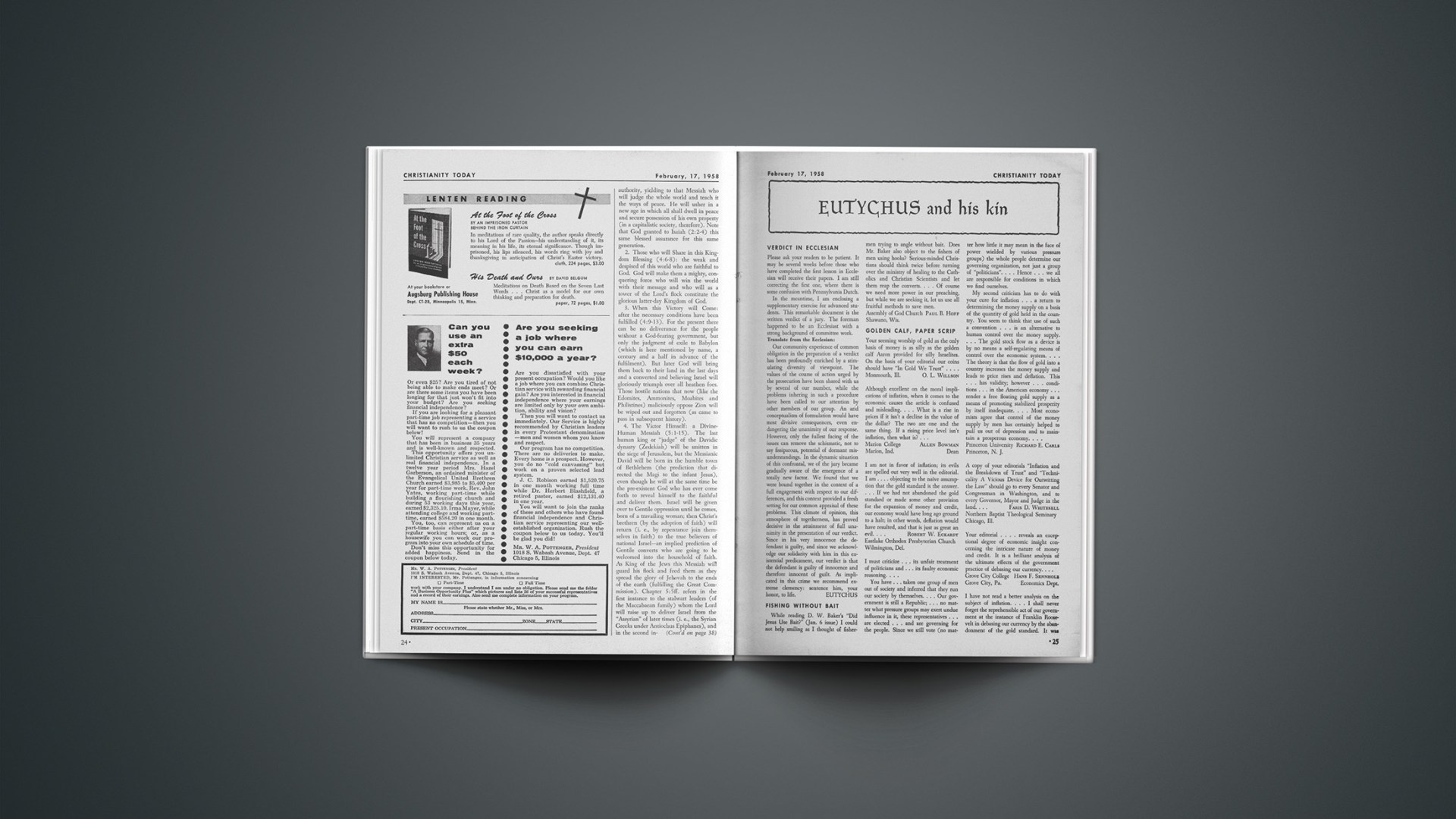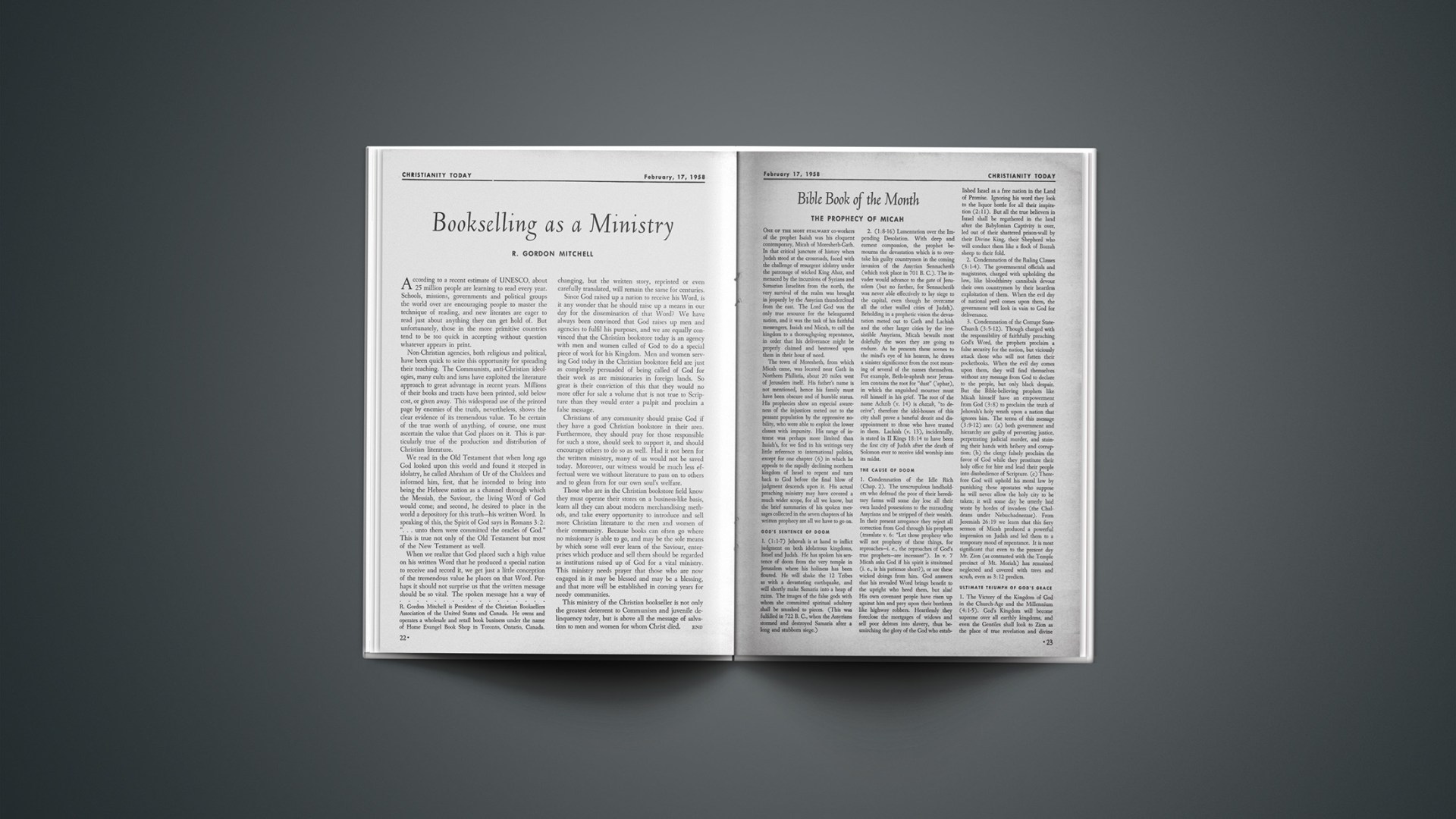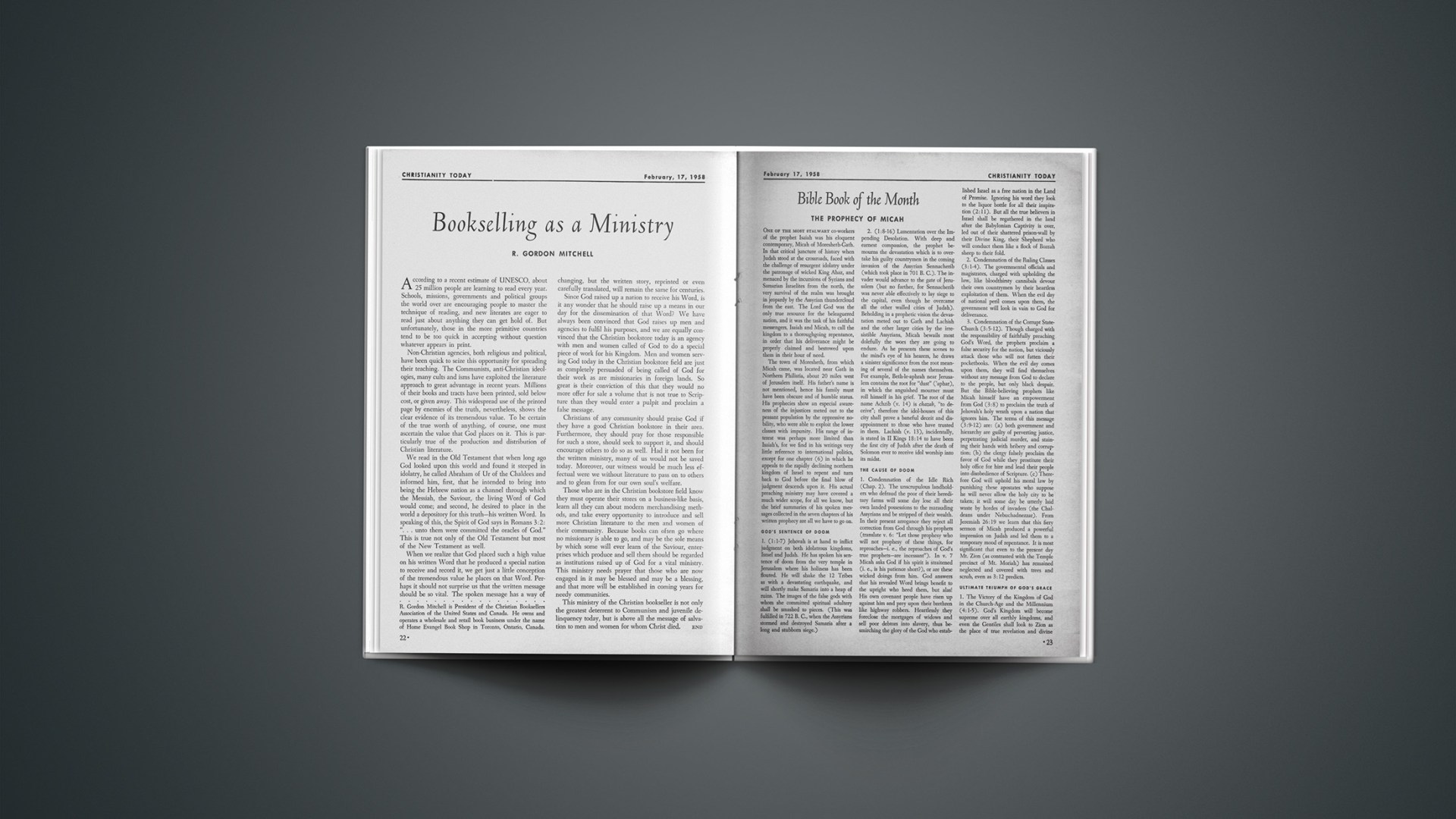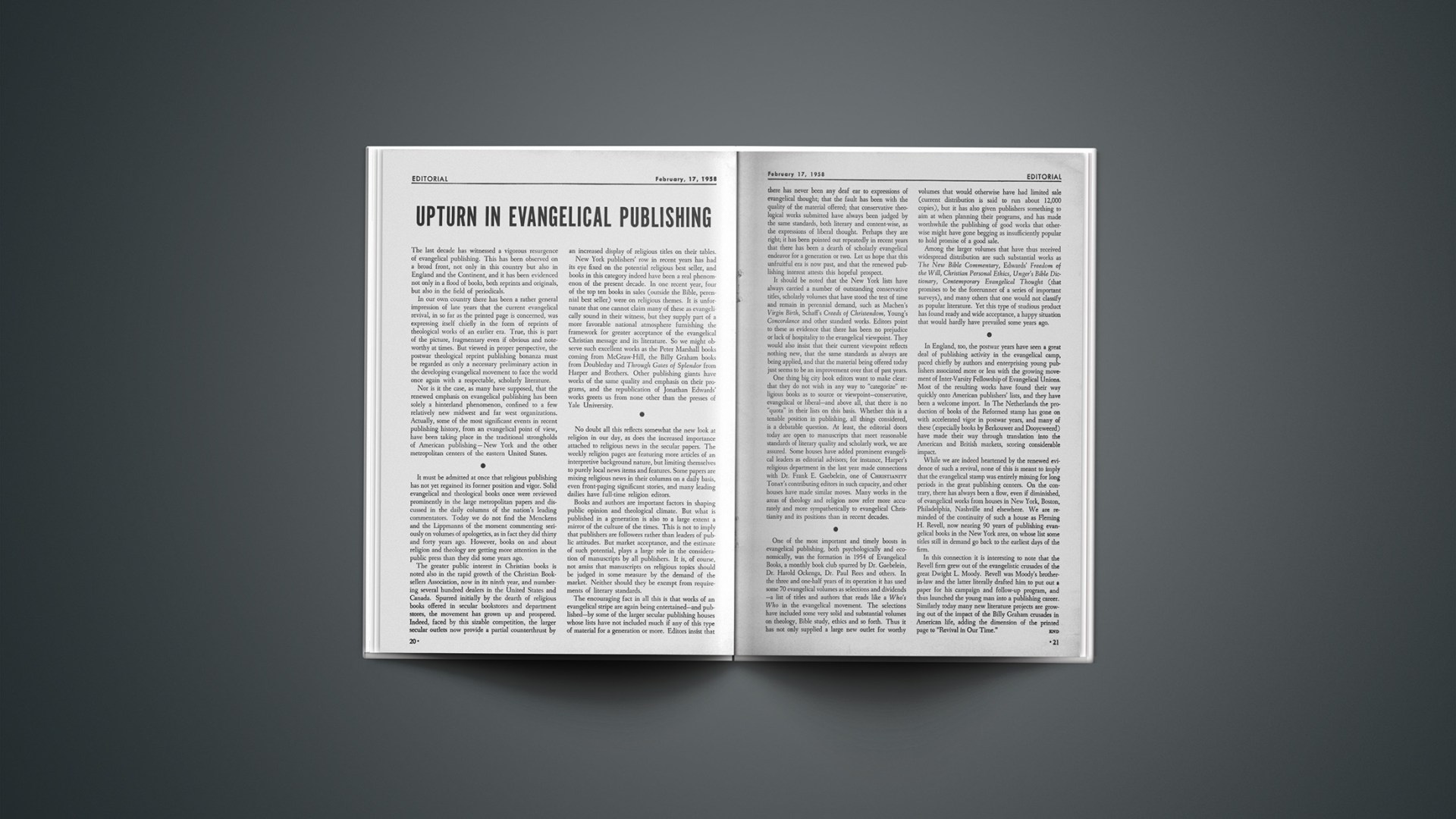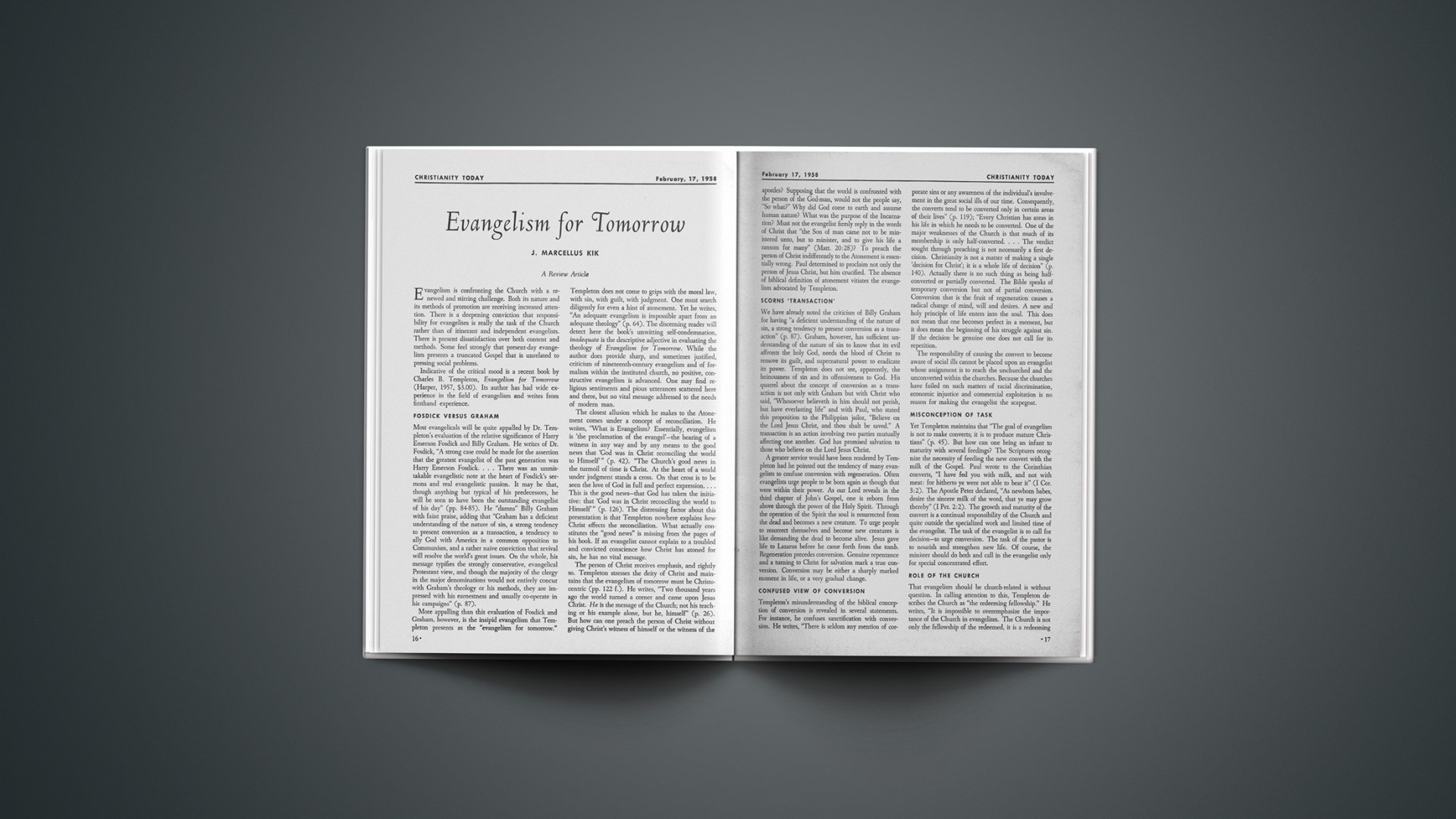The famous psychologist C. G. Jung once undertook a detailed investigation of the nature and the power of evil. With emphasis, he thereupon placed himself in opposition to what he called the “teaching of the church,” viz, that evil is merely a deficiency of goodness (privatio boni). He saw in this view a serious underestimation of evil because in this expression it is viewed only negatively and as a lack of something. He saw that in line with such underestimation, sooner or later Protestantism would eliminate the devil entirely, and Jung wished, as he said, to posit over against this underestimation of evil something more substantial. For in the empirical life evil is experienced in its thorough juxtaposition to good, just as in the New Testament there arises the idea of the anti-Christ as opposed to the Christ. Every idea that minimizes evil must be combatted. Evil is not just a deprivation, but it is a destructive power. Jung notes what has happened in the concentration camps of the dictator states, and certainly here no one can point to such things as “lack of perfection.” No, evil stands as a shattering, annihilating power over against the good.
It is clear to see that these views of Jung deserve some attention, but that they also fall short in some measure. He does not bring sufficiently into reckoning that the characterization of evil as a deficiency of the good was already applied by St. Augustine and many others especially as an antidote to Manichaeanism, that considered sin as a substantial entity in eternal antithesis to the good. And when later in Protestantism the expression “falling short” begins to play a considerable role, it is always with the understanding that it concerns an active deprivation (privatio actuosa) to remain in agreement with the New Testament in which sin is always characterized as rebellion and transgression, as enmity against God.
However, in dealing with Jung one cannot merely speak of misapprehension. Often men, resting in a comfortable optimism, have failed to do justice to the reality of evil in the world; and often through the means of this idea of falling short, men have characterized evil as a “missing of the mark,” a “shortage,” a “not-yet,” that eventually can be filled in or achieved. How many times has evil been designated as a temporary failure or shortage, as a phase in our development. In this way one can “explain” sin on the basis of all kinds of circumstances, or out of pecularities or limitations of the human spirit, without admitting or confessing that it is a matter in which ruin and terror are involved.
Suddenly mankind recognizes that this description of evil does not ring true to reality. It is not a coincidence that Jung points to the concentration camps. That is the most frequently mentioned example in modern times, the destructive power of one man over the lives of others. One feels at once that the explanations of “falling short” and “not-yet” do not do justice. But often we get the impression that men in treating of evil first of all and chiefly call attention to the human consequences, and that the idea of sin against God plays a very small role. We hear of demonism and the extremes of egocentricism, and we come under the spell of the power of “the evil,” as, for instance, Albert Camus treats of it in his book, The Fall, where such egocentricism plays a thorough-going role. We hear the lamentations over the demoniacal manifestations in human life that make one individual a menace to another.
We do not, however, in this manner touch on the depths of the power of sin that is described in the Bible as the estrangement of a life from God, enmity against him, and thus we come again along all these paths to an underestimation of evil. When the estrangement from God is not recognized and confessed, we come back always to the idea of shortcoming, which can indeed strike with surprise, with fear and dismay, but in which we do not seek the path of forgiveness. It is only by way of confession of sin, through the cry from out of the depths, that a perspective is again opened for reunion. It is certainly no coincidence that the Bible, which points to the deepest sources of evil as the forsaking of God’s ways, is filled to the brim with the calling of man to his obligations to his fellowman. It is exactly where sin is not looked upon as a dramatic and mysterious appearance, as the destruction of human relationships, that man comes again to see and to face his need and his suffering, his poverty and his misery.
The relationships between love for God and love toward man are unbreakable. “But whoso hath this world’s good, and seeth his brother have a need, and shutteth up his bowels of compassion from him, how dwelleth the love of God in him?” (1 John 3:17).
The recognition of evil has nothing to do with various forms of pessimism that air lamentations over the state of mankind and that most of all speak only of the guilt of others. These complaints are unfruitful and do not bring any blessings for human life. They may arise out of a proud heart. How many times one can see only the splinter in the eye of another, but not the beam in his own. How sharply at times is judgment passed on a person, or mankind, without any confession of guilt on the part of oneself. Underestimation of evil evidences itself most of all in the form of underestimating evil in our own lives. The genuine sense of guilt begins not with another, but with ourselves, and in this confession of sin the mercy of God is experienced as a great light shining in deep darkness.
In this world there are plenty of lamentations and also of accusations. But the contriteness that forms the entrance to the Kingdom of God is something completely different. It transcends the juxtaposition of pessimism and optimism, and more than ever before, man in our times has need of this type of sorrow. This is directly opposite to what the Gospels characterize as the “wholeness” of those who do not feel the need of a physician, and of those “righteous” who do not feel the need of conversion. This “health,” this “wholeness,” is the pressing danger of our times. There are so few really “sick ones” who are stretching forth their hands to receive the healing medicine. The Bible speaks of a God who chastises, but men today have not felt any pain. This lack of feeling, this insensitiveness, closes the heart for forgiveness, and this makes life, amidst great need, cold, and in most cases hard and merciless.
However, he who has learned to see the guilt of sin in its depths comes also through the confession of guilt to the joy of forgiveness. This forgiveness becomes in the life of the individual a power that cannot stay hidden. There is a deep-flowing correspondence between guilt and forgiveness. He who has been forgiven much, loveth much (Luke 7:47).



